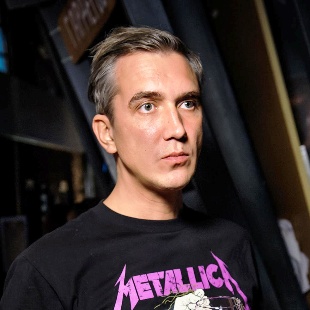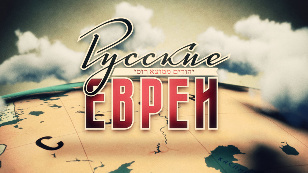
Sergey Nurmamed
Career
Кинорежиссёр и оператор. Работал на телеканалах ТВС и НТВ. Сотрудничал с программами «Намедни» Леонида Парфёнова и «Авиаторы» Алексея Пивоварова. Имеет спецприз кинематографической академии «Ника», «ТЭФИ» и две награды Национальной премии «Лавровая ветвь»
Date of birth
08.04.1980
Filmography
9
With the assassination in 1948 by state security officers of the head of the Jewish Anti-Fascist Committee, Solomon Mikhoels, new times begin in the relationship between the Soviet government and Jews. The liquidation of the JAC, the execution of its activists, and the campaign against the "rootless cosmopolitans" form a new state anti-Semitism. The death of Stalin will cancel the massacre, but the former official Russian-Jewish harmony under socialism will no longer be restored. Popularly known superstars have not diminished: Botvinnik is the main chess player, Raikin is the main comedian, Plisetskaya is the main ballerina, Galich and Vysotsky are the main bards, many famous names in various fields, from nuclear physics to light music. But Jews have ceased to be co-authors of Russian communism. And they are no longer allowed into politics, and they themselves are especially actively engaged in "anti-Soviet activities." Without the Jews, the shadow economy is unimaginable, or rather “illegal business”, for which death sentences have been handed down since the early 1960s. And from the middle of the decade, the dissident movement begins to shake the system; the grandchildren of Jewish revolutionaries bring into it the same ardor and fearlessness that their grandfathers did in the overthrow of tsarism. Allowing Jewish emigration in the 1970s makes nationality a means of rejecting socialism and will prove to be a more frequent reason for leaving than the opportunity to reverse one's Russian assimilation. Finally, the collapse of the USSR will put an end to the "Jewish question" in the form in which the last Soviet generations found it.

9
2017
126 min
Nadia Kuznetsova is 28 years old, she lives in Veliky Novgorod, she graduated from high school and university here, she dreams of going to the sea and regaining her fingers. Nadya is sick with a rare genetic disease, epidermolysis bullosa, which is called the "butterfly syndrome", the patient's skin is injured from any touch. The disease is incurable. As Nadia herself says, "I do not fight with her, I live with her." She fights for something else, for leading the life of an ordinary person. And, having gone through years of trials, he wins.

7
2015
69 min
This film is an attempt at a group portrait of those whom Brodsky would have caught if he had the opportunity to return to Russia today. Formally, the characters in the film talk about Brodsky. But in these stories there are not literary critics, but people who have experienced the strong influence of Brodsky, whom they have never seen, there are so many of them themselves that a portrait of a whole generation has come out. Generations of the children of Joseph Brodsky, who never saw their father with their own eyes.

8
2015
77 min
A reliable and poignant story about what the children and teenagers of besieged Leningrad experienced. 14 surviving heroes and several dozens of those for whom only the lines of diaries and captions to children's drawings can now speak, word by word, minute by minute, story by story, revive the memory of the siege. What did the people in the besieged city really feel? What of what we know about the blockade is true, and what is a myth, a stamp from a history textbook? The authors of the film, with the help of video comparisons-reconstructions, return modern St. Petersburg to the terrible time of the blockade, connecting history with the moment. This film is a memory and a film about memory. About how it is set up. About those thanks to whom it can, must be preserved.

7
2014
120 min
Sergei Mikhailovich Prokudin-Gorsky is not just one of the founders of world color photography, the author of the first color postcards in the Russian Empire and the publisher of the Amateur Photographer magazine. As early as the beginning of the 20th century, he was the first to realize the exceptional mission of color photography: only photography “in natural colors” will fully preserve the appearance of what can be lost at any moment. The professor set himself the fantastic goal of traveling around and capturing the entire Russian Empire on a camera in order to leave a complete “collection of sights” to posterity. Enlisting the help of the tsar, Prokudin-Gorsky captured thousands of objects on the territory of the entire Russian Empire. The film tells about the fate and professional feat of Prokudin-Gorsky, gives a panorama of the pre-revolutionary empire and portraits of its contemporaries. In the footsteps of Prokudin-Gorsky, the film crew of Leonid Parfyonov visited 12 regions to see for themselves the changes that had taken place in the country. The film was attended by the grandchildren of Prokudin-Gorsky, who live in France, as well as experts from the US Library of Congress.

9
2013
79 min
This Soviet general was in a special account with Stalin and was known as his favorite. In December 1941, together with Zhukov and Rokossovsky, he was called the "savior of Moscow." In 1942, the Leader entrusted him with a new, responsible mission. No one could have imagined that very soon the name of this general would become as common as the name of Judas.

7
2011
83 min
One of the inventions of the 20th century that changed the world is television. It appeared thanks to the work of many inventors, one of which is a Russian American, the creator of wireless image transmission technology at a distance, Vladimir Kozmich Zworykin. Paradoxically, he is almost unknown in his homeland.

9
2009
141 min

